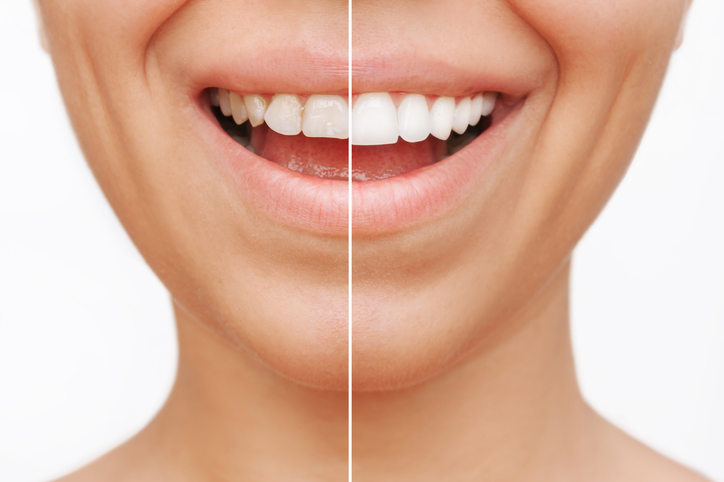
Veneers are a compelling option in cosmetic dentistry that have transformed countless smiles, and understanding them can help you make informed decisions about your dental health. Particularly, porcelain veneers have gained significant attention due to their durability and lifelike appearance. This comprehensive guide aims to shed light on the details of porcelain veneers to give you the knowledge you need before making a dental appointment.
In essence, veneers are thin shells that adhere to the front surface of your teeth, providing an improved appearance. They’re custom-made for each patient and can alter a tooth’s color, shape, size, or length. Among the many types of veneers available, porcelain stands out as one of the most popular materials due to its ability to mimic natural teeth’s translucence and resilience.
Understanding porcelain veneers is key to knowing whether they’re the right choice for you. As one of the most advanced cosmetic dentistry procedures, they require a commitment in terms of time and oral care. Therefore, an informed decision can lead to satisfaction with the outcome and longevity of the veneers.
By reading this guide, you will gain an in-depth understanding of porcelain veneers. It will provide you with the information you need to discuss the treatment with confidence when you visit our team at North Royalton Family Dental. Dr. Taylor and the team will be able to answer your questions based on your newfound knowledge and give you personalized advice.
What are Porcelain Veneers?
Porcelain veneers are wafer-thin, custom-made shells of tooth-colored porcelain designed to cover the front surface of teeth. They’re bonded to the teeth, improving the appearance of your smile. Porcelain mimics the light-reflecting properties of natural teeth, providing a more natural look than other types of veneers.
Unlike composite resin or other types of veneers, porcelain veneers are stronger, more durable, and less likely to stain. They are made in a laboratory, which allows for a higher degree of customization and a more precise fit.
Porcelain veneers are versatile and can address numerous dental issues. For example, they can correct discoloration that hasn’t responded to whitening treatments, mend chips and cracks, close gaps between teeth, and correct minor misalignments. They offer a unique solution for patients looking to enhance their smile in a relatively non-invasive way.
The Veneers Process: Step-by-Step
The journey towards a beautiful smile begins with an initial consultation. During this meeting, Dr. Taylor will examine your oral health to ensure veneers are a good fit for you. This includes assessing your teeth and gums, as well as discussing your desired results. We believe that patient education is crucial, so feel free to ask any questions or voice any concerns you might have.
Once veneers are deemed appropriate for you, the next step involves preparing your teeth. This typically means removing a small amount of enamel from the tooth’s surface, allowing for the thickness of the veneer. This is done with great care to ensure your comfort and to maintain as much of the natural tooth structure as possible.
Following tooth preparation, impressions of your teeth will be taken. These serve as a model for creating your custom veneers. In the meantime, temporary veneers might be placed to protect your prepared teeth.
Once your porcelain veneers are ready, Dr. Taylor will place them on your teeth to check the fit and color. After any necessary adjustments, the veneers are cleaned, and your teeth are etched to allow a strong bonding process. The veneers are then bonded to your teeth using a special light-activated adhesive.
To ensure the longevity of your veneers, it’s important to maintain good oral hygiene practices such as regular brushing and flossing. Regular dental check-ups at North Royalton Family Dental are also essential. While veneers are strong, avoiding using your teeth as tools to open packages or crack nuts can help prevent damage.
Advantages and Disadvantages of Porcelain Veneers
Benefits of Porcelain Veneers
- Natural Appearance and Aesthetics: Porcelain veneers are designed to resemble natural teeth closely. They reflect light similarly, giving you a natural-looking, beautiful smile.
- Durability and Longevity: With proper care, porcelain veneers can last 10 to 15 years, making them a long-term solution to various dental issues.
- Stain Resistance: Porcelain veneers are highly resistant to staining, allowing you to enjoy your favorite beverages and foods without worrying about discoloration.
Potential Drawbacks of Porcelain Veneers
- Cost Considerations: While we can’t discuss specific costs, it’s important to note that porcelain veneers are an investment. Consider the value of the potential benefits when making your decision.
- Irreversible Procedure: The tooth preparation process for veneers is irreversible. It’s important to discuss this with Dr. Taylor during the consultation stage.
- Sensitivity and Potential Risks: Some patients may experience temporary sensitivity following the procedure. Rest assured, our team will advise you on managing any discomfort and monitoring your oral health.
Frequently Asked Questions about Porcelain Veneers
Can Anyone Get Veneers?
While porcelain veneers are a versatile solution for numerous dental issues, they may not be suitable for everyone. Conditions like severe tooth decay, gum disease, or insufficient enamel can affect the success of veneers. It’s crucial to have a thorough consultation with Dr. Taylor to determine if veneers are the right choice for you.
How Long Do Porcelain Veneers Last?
Porcelain veneers are durable and with proper care, can last anywhere from 10 to 15 years, sometimes even longer. However, they may eventually need to be replaced due to normal wear or damage.
Do Veneers Require Special Care?
Porcelain veneers don’t require special care beyond maintaining good oral hygiene. This includes regular brushing, flossing, and routine dental check-ups. Although veneers are stain-resistant, limiting consumption of staining foods and beverages can keep them looking their best.
Can Veneers be Whitened?
Veneers themselves cannot be whitened. However, they’re resistant to stains, which helps maintain their brightness. If you’re considering teeth whitening, it’s best to do so before getting veneers so that they can be matched to the newly whitened teeth.
Can Veneers Fix Crooked Teeth?
Veneers can’t correct severe misalignment or orthodontic issues, but they can help with minor cosmetic issues, like small gaps or slightly crooked teeth. They create a uniform, straight appearance, often referred to as “instant orthodontics.”
Schedule an Appointment
In this comprehensive guide, we’ve explored the world of porcelain veneers. We’ve discussed their purpose, the procedure, their benefits and potential drawbacks, and answered some frequently asked questions.
If porcelain veneers seem like a potential solution for enhancing your smile, we encourage you to schedule a consultation with Dr. Taylor. The team at North Royalton Family Dental is dedicated to ensuring you have all the information you need to make the best decision for your dental health.
Porcelain veneers offer a plethora of benefits, including natural appearance, durability, stain resistance, and the ability to address multiple dental issues simultaneously. They can be a game-changer for many patients looking to improve their smile.
Choosing to get porcelain veneers is an important decision. We hope this guide has been informative and helpful in your journey towards better dental health. We invite you to get in touch with us at North Royalton Family Dental and take the first step towards the smile you’ve always dreamed of. We look forward to partnering with you on this journey.

